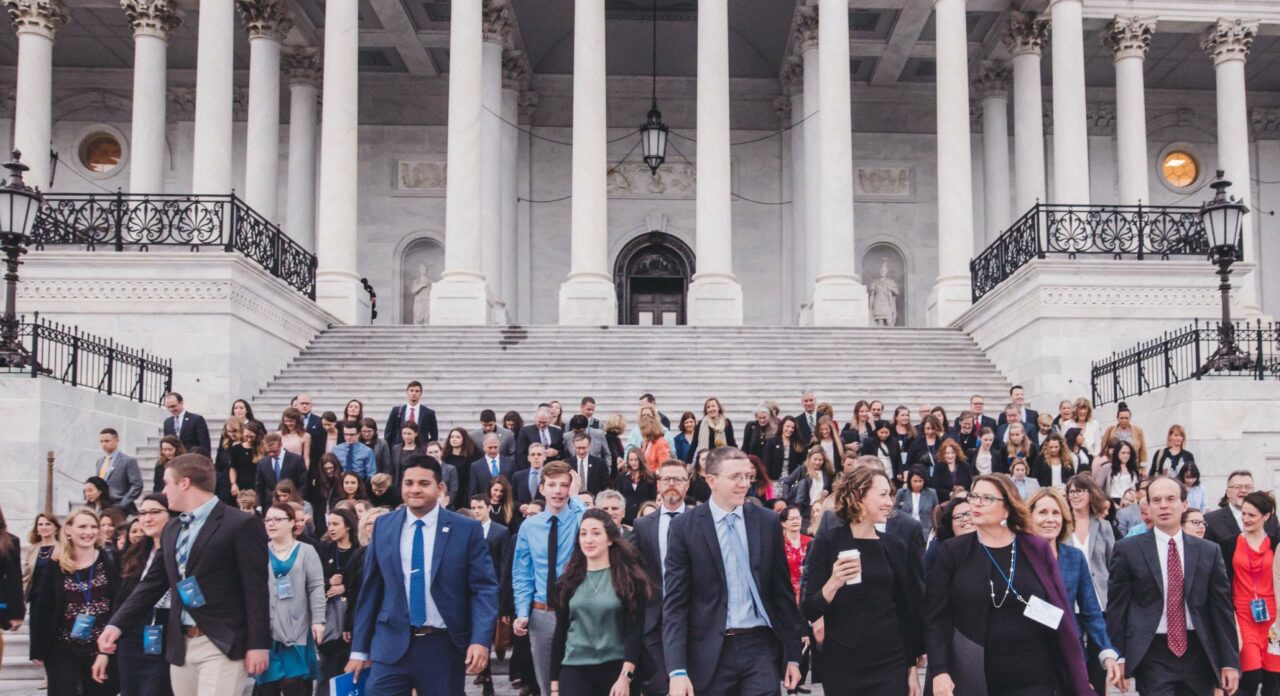What words come to mind when you think about the movement to end slavery?
Appropriations? Legislation? State Department offices?
Believe it or not, all these things have a crucial role to play in the fight to end slavery, trafficking and violence against people who are poor. More importantly, the strength of their role in the fight is directly tied to the power of individual advocates just like you.
As Americans, we elect congresspeople and senators to represent us in Washington, DC. By electing them, we are empowering these representatives to write and enact laws on our behalf. Sadly, many people think that once our representatives get to Washington, DC, we no longer have any role to play in the decisions made in Congress.
Nothing could be further from the truth.
The truth is, your representatives work for you. You are their employer. Your taxes pay their salary. And if you find that they aren’t working for you, you can vote to replace them in the next election.
What does Congress have to do with ending slavery?
For years, advocates just like you have signed petitions, made calls and visited representatives in person to tell them about the realities of slavery and ask them to use their power to do something to end it.
As awareness about the realities of modern-day slavery grew in Congress, the US government passed the Child Protection Compact Act in 2011, which allows the government to enter into agreements with other countries to combat trafficking.
We also saw the development of the Trafficking In Persons (TIP) Office in the State Department, the Program to End Modern Slavery (PEMS), and government funding to important international efforts like the Global Fund to End Modern Slavery(GFEMS).
Did You Know?
The majority of Americans overestimate US spending on foreign aid. At $39.2 billion for fiscal year 2019, foreign aid is less than 1% of the federal budget.
Even though all of this incredible progress has been made, we still need advocates to regularly speak up about ending slavery.
Why?
Appropriations.
Your tax dollars can help save lives.
Appropriations is, at its core, the annual process of building the budget for the national government. The House and Senate both have appropriations committees, and those committees have subcommittees, and once both groups agree on a budget, it is signed by the President.
This is the part of the budgeting process where we learn whether all of those great anti-slavery programs that advocates like you worked so hard to create actually get funded or not. Sometimes a representative or senator will look at the budget and try to scrape a few million dollars from one item and put it somewhere else. And even though foreign aid spending makes up less than 1% of our national budget (PEMS and the TIP Office are a very small fraction of that), it’s not uncommon for money to be taken from the foreign aid budget to help pay for other things.
Here’s where you come in.
If you are an American citizen who cares about ending slavery and trafficking around the world, reach out to your representatives in Congress and tell them to protect programs like the TIP Office and PEMS in the budget.
Sign and share the petition today!
It takes 10 seconds to fill out our petition to make sure these programs are fully funded.
